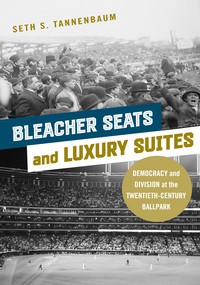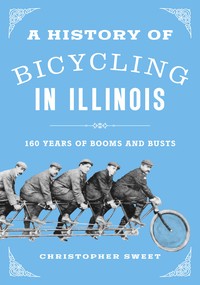
Baseball on Trial
About the Book
The controversial 1922 Federal Baseball Supreme Court ruling held that the "business of base ball" was not subject to the Sherman Antitrust Act because it did not constitute interstate commerce. In Baseball on Trial, legal scholar Nathaniel Grow defies conventional wisdom to explain why the unanimous Supreme Court opinion authored by Justice Oliver Wendell Holmes, which gave rise to Major League Baseball's exemption from antitrust law, was correct given the circumstances of the time.Currently a billion dollar enterprise, professional baseball teams crisscross the country while the games are broadcast via radio, television, and internet coast to coast. The sheer scope of this activity would seem to embody the phrase "interstate commerce." Yet baseball is the only professional sport--indeed the sole industry--in the United States that currently benefits from a judicially constructed antitrust immunity. How could this be?
Using recently released documents from the National Baseball Hall of Fame, Grow analyzes how the Supreme Court reached this seemingly peculiar result by tracing the Federal Baseball litigation from its roots in 1914 to its resolution in 1922, in the process uncovering significant new details about the proceedings. Grow observes that while interstate commerce was measured at the time by the exchange of tangible goods, baseball teams in the 1910s merely provided live entertainment to their fans, while radio was a fledgling technology that had little impact on the sport. The book ultimately concludes that, despite the frequent criticism of the opinion, the Supreme Court's decision was consistent with the conditions and legal climate of the early twentieth century.
About the Author
Nathaniel Grow is an associate professor of business law and ethics at the Kelley School of Business at Indiana University.Reviews
"Using newly released attorney correspondence, court records, and newspaper accounts of the time, Grow presents in stunning detail the background, characters, arguments, events, tactics, (and mistakes) leading to the Federal Baseball decision. showing that 'many of the common criticisms. . . are unjust, as the decision was consistent with the prevailing judicial precedents of the day'. . . . Recommended."--Choice"Grow explains that the afterlife of Federal Baseball is more remarkable than the conclusions in the case itself. With careful and measured scholarship, Grow urges later reader of Federal Baseball to recognize that the case was heard before widespread interstate radio coverage, and before the broad interpretation of 'commerce' in the New Deal decisions."--Western Legal History
"Federal Baseball, the shorthand name of the case, is still the law of land. Here is a baseball book in which the major on-field action is the serving of various contract-jumping players with court orders. But if a reader is interested in how the business of baseball developed, the case is crucial; and Baseball on Trial can explain how and why."--Nine
"Grow's book is impressively comprehensive and exhaustive. . . . for the reader interested in a comprehensive account of a seminal moment in baseball's legal history, Grow's Baseball on Trial is an excellent choice."--Law and History Review
"Grow undoubtedly succeeds in shining a light on the buildup to and background of the Federal Baseball decision."--Sport in American History
Blurbs
"[A] thoughtful and provocative analysis of one of the most controversial topics in sports law: Baseball's antitrust exemption. Grow adroitly connects recent disclosures from the Baseball Hall of Fame to advance his argument that the Federal Baseball holding made much more sense ninety years ago than contemporary commentators tend to regard it. As baseball's antitrust exemption continues to face legal challenges--including whether the Oakland A's can move to San Jose--Grow's book will undoubtedly play an influential role."--Michael McCann, Sports Illustrated legal analyst
"The lawsuits arising from the Federal League's challenge to Major League Baseball and their aftermath defined much of the way baseball has evolved over the past century. Bolstered by original research, Grow explains both the broader picture and the intriguing behind-the-scenes machinations, and he does so in a clear and entertaining fashion."-- Daniel R. Levitt, author of The Battle that Forged Modern Baseball: The Federal League Challenge and Its Legacy
"An outstanding book based on previously unused materials, Baseball on Trial makes a truly significant contribution to the fields of baseball and the law, sports law, antitrust law, and legal history. Anyone discussing the trilogy of Supreme Court cases that created baseball's antitrust exemption needs to read this book."--Edmund P. Edmonds, co-editor of Baseball and Antitrust: The Legislative History
Awards
• Larry Ritter Book Award, Society for American Baseball Research (SABR), 2015• Finalist, Seymour Medal, Society for American Baseball Research (SABR), 2015
• David J. Langum Sr. Prize for American Legal History/Biography, Langum Charitable Trust, 2014







